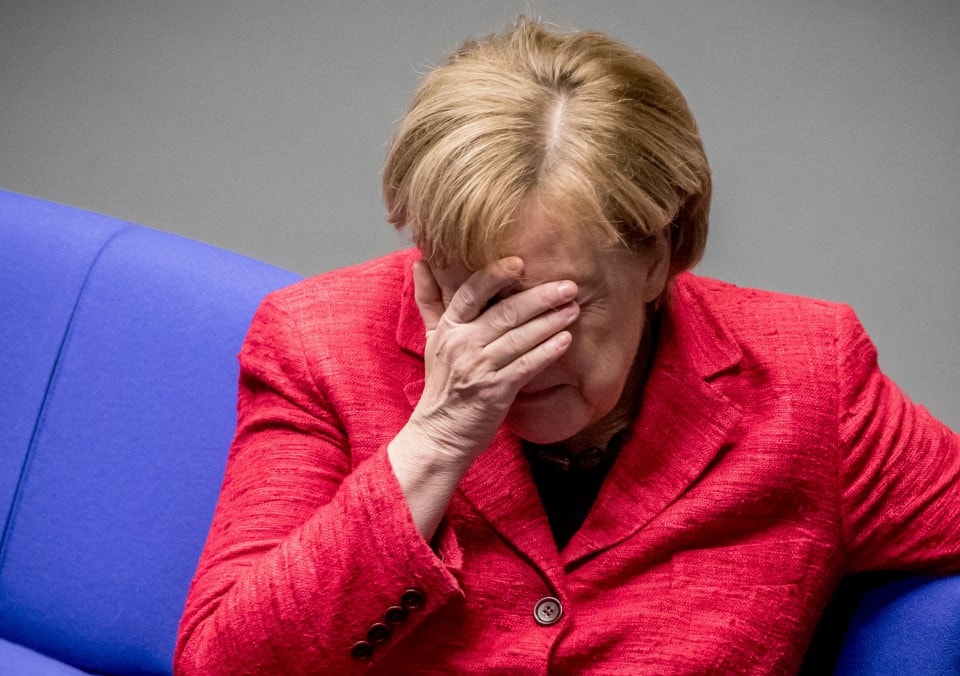Marcel Fratzscher is president of the German Institute for Economic Research (DIW Berlin) and professor of macroeconomics and finance at Humboldt University of Berlin.
BERLIN — Can you guess the country to which the following facts apply? Economic growth and wage growth have been below average over the past 20 years. More than one in five people have only temporary, low-wage or marginal jobs. Social and political polarization is increasing. Wealth inequality is among the highest of Western countries, and the government is depleting its public wealth by investing too little in infrastructure and education. You would be forgiven for thinking that this country is the United States. But I’m talking about Germany.
Many people in the world today are pinning their hopes on an economically prosperous and politically stable Germany to provide leadership in an uncertain world. To be sure, Germany and Chancellor Angela Merkel, who is in tough talks to form a new coalition government after recent elections, have taken on increased responsibility in Europe and the world in the past few years and will continue to do so. And Germany’s economic performance in recent years has been impressive. But if we want to understand Germany’s role in the future, we need to understand the challenges it faces today.
Germany has experienced three major economic success stories over the past 10 years: an employment miracle, in which unemployment was cut in half and the economy managed to incorporate millions of women and migrants into the labor force; exporting German companies’ competitiveness, which has triggered widespread admiration (and jealousy, including by the U.S. president who complained about too many German cars on American roads); and the federal government’s financial stability, with surpluses every year since 2014.
In fact, you could add more successes — Germany has managed to weather several recent crises well. It escaped the European sovereign debt crisis relatively unscathed, and it managed the influx of more than a million refugees remarkably well.
Given these achievements, it seems surprising that Merkel’s conservative party and its junior coalition partner, the Social Democrats, were the main losers of Germany’s recent elections in September. The elections elevated the extremist, right-wing and xenophobic Alternative for Germany (AfD) party to the third strongest in Parliament.
Many Germans — and others — forget that the country was labeled the “sick man of Europe” in the late 1990s. Fundamental economic and social reforms were implemented in 2003 with reforms to the labor market and social security through the so-called Agenda 2010. The German economy only managed to start recovering in 2007 and then suffered a strong downturn during the global financial crisis. Germany’s impressive economic performance in recent years needs to be seen in perspective to its lost decade in the 2000s — the “sick man of Europe” era.
Two main challenges for Germany are underemployment and falling real wages for a substantial share of its workers. Many highly skilled workers have experienced a sharp increase in their wages, and the labor force participation among women has increased. But the dark side of Germany’s labor market is that more than one out of five workers — that’s twice the number in France — is in atypical employment. That means they earn little more than minimum wage, working part-time or on temporary work contracts.
Equally worrisome, the bottom third of workers, those with the lowest wages, are worse off and have lower real wages today than in 2000. And poverty has been rising, putting one out of five children below the poverty line.
Moreover, the average household in Germany has one of the lowest levels of private net wealth and thus one of the highest levels of wealth inequality among European countries. This is puzzling, as Germans not only have a relatively high per-capita income, but they save 10 percent of their disposable income, which is more than in most countries. But they save very poorly and unequally. Few Germans own their homes and most keep their savings in a bank account, which makes it hard to accumulate wealth, particularly when interest rates are at zero.
However, the bigger problem is that the bottom half of the population has such a low income that it can barely save enough to build up savings and wealth. This inequality is exerting a negative influence on the economy and on society by weakening growth and economic and social participation.
Equal opportunity and social mobility are also not high. A person’s income is strongly correlated with his or her parents’ income and education, and children from socially disadvantaged families have a hard time making use of their talents and obtaining good qualifications and jobs. Women in Germany face one of the largest gender pay gaps in Europe. Migrants and their children find it far more difficult to make use of their skillsets and get a fair chance when it comes to education, the labor market and society at large.
In short, Germany’s relatively strong recent economic performance is just catching up to the lost decade in the 2000s. Germany is not an exception from the challenge of high and rising social polarization and lack of social mobility, which have played a major role in the rise in populism and protectionism in many Western countries. Germany’s most important economic Achilles’ heel is its massive public and private investment gap.
Just like its European neighbors, Germany urgently needs economic and social reforms. It is running an increasing risk of missing a huge opportunity to make the country and Europe fit for the future. The next German government needs to give high priority to investing in education, innovation and infrastructure — including digital infrastructure — rather than increases in pensions and tax cuts.
This was produced by The WorldPost, a partnership of the Berggruen Institute and The Washington Post.





